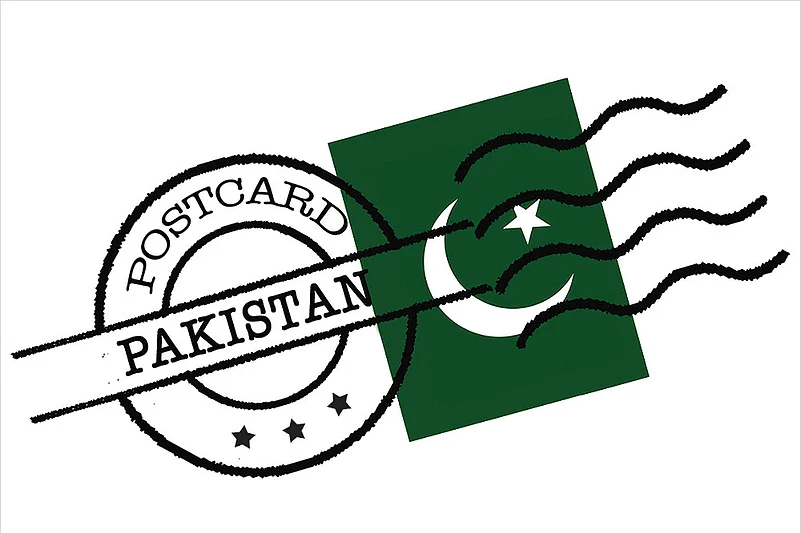All Handicaps Overcome
Pratima Sherpa, 18, lives with her parents in a two-room shed at the Royal Nepal Golf Club in Kathmandu. And she’s played golf with Tiger Woods. She started playing when her father, a store-keeper at the club, made her a wooden club in 2012; she went on to win many tournaments. When she was featured in an article by journalist Oliver Horovitz last year, things kicked into high gear—Pratima was sponsored to compete in five US tournaments, one of which she won. Further triumphs followed; she’s now angling to become Nepal’s first female pro golfer. Last month, another US trip to watch a documentary about herself gave her the chance to have a training session with Tiger. She also received an inspirational letter from him, which is now on display in the shed. The family reads it every day.

Blasphemous Plume
The big-fat celebrity wedding is, by design, a public spectacle. It trends on social media web pages and makes for bright features in the entertainment pages of newspapers. Actress Sonam Kapoor’s wedding in front of the Guru Granth Sahib was held under the scrutiny of former SGPC officials, who noticed a violation. A video clip of the marriage with “businessman” Anand Ahuja showed the officials conducting the ceremony overlooking a custom: removal of the kalgi (plume) on the groom’s turban while he faced the holy book of the Sikhs. The irked ex-officials want action against the ceremony conductors—themselves former SGPC members of high stature.

A Hen Night To Remember
Two Kadaknath chickens were wed in a village in Chhattisgarh’s Dantewada district recently, with distinguished citizens and local officials—including the district collector—conferring their blessings on the happy couple. The ceremony was hosted by the ‘father’ of the ‘groom’, Dantewada district poultry association president Lardu Nag. It was held on behalf of tribal farmers to celebrate the conservation of the females of the species after their nearly dying out in the area. The ‘black beauties’ are popular for the taste and nutritional qualities of their meat, believed to be an aphrodisiac. The fowl have been reared by the adivasis, particularly women, since January as part of a subsidised scheme. The district currently has 76,000 of the birds; the target of 1.5 lakh by this year-end. Will they be counted before they are hatched, we wonder.

Translation (T)error
Bal Gangadhar Tilak, father of terrorism—probably not what you were taught at school. But that’s what a Class 8 reference book used by some schools in Rajasthan calls him. The quote reads, “Tilak demonstrated a path towards [a] national movement, therefore he is called as [sic] the father of terrorism.” This was apparently a translation error that the publishers corrected when a revised edition was issued last month. They also issued an apology in a Hindi daily. The reference has been corrected to “originator of extremism”—but even this seems derogatory. Historian Pramila Poonia was quoted as saying, “The British called him ‘father of Indian unrest’, but for us he was a great nationalist.”

Sympathy For A Spineless Snake
A six-month-old snake crawled into the bedroom of Brahmananda Rao, a farmer in Ramachandrapuram in Andhra Pradesh. The cobra was soon beaten with a stick, leaving it with a broken spine and intestines spilling out. Rao called Chadalawada Kranthi of the Snake Saver Society. Kranthi took it to his house and give it first aid—and this enabled the cobra to survive until it could be taken to a veterinary hospital the next morning. The spine was tied together, the intestines were put back in and the stomach was stitched up in an hour-long surgery. The patient is recuperating in Kranthi’s care.
The Padwomen Of Sabarmati
The inmates of Sabarmati Central Jail in Ahmedabad can take up work, including baking and carpentry, to earn money and meet their expenses. Laudable, yes. Only, it’s restricted to men. They can be barred from work as a punishment for bad behaviour, but it’s a punishment the women must constantly endure. But NGO Karma Foundation and Navjivan Trust, the publishing house that the Mahatma founded, have now set up a unit where women make sanitary pads. They should earn enough for their own needs and some of the revenue will also be used to expand the project.
A Bride For Guwahati’s Goldie
They’re hoping they can find him a suitable mate, now that he has turned 32 and been single for five years. Goldie is the only blue-and-gold macaw in the state zoo at Guwahati. “We are asking people who breed macaws to donate a female to pair him up,” said zoo DFO Tejas Mariswamy. Goldie, the only macaw in the zoo—he was brought in the mid-1980s. This May 9, the zoo authorities organised a birthday bash for Goldie. It was attended by Dr Debashish Banerjee, who has the largest collection of exotic birds in the country. Macaws live up to 50 years and can breed until 40. The zoo officials are hoping that once Goldie gets a mate, they’ll soon have a macaw family for exhibition.

Businessman Envoy
Controversies over crucial postings never seem to end in Pakistan, especially, when it concerns the United States. The latest is over Pakistan’s new envoy to Washington. The ambassador-designate, Ali Jehangir Siddiqui, is not a career diplomat. Media reports in Pakistan suggest his business background led the PML(N) government to choose Siddiqui, who has no knowledge of security-related issues.
Pakistani analysts point out that the idea was to break into new ground in US-Pak relations. But the entire decision was taken by the Prime Minister’s secretariat without inputs from the foreign office—this seems to have raised eyebrows in the US as well. American observers have told their Pakistani friends that it was one of the major flaws in the country’s dealing with the outside world. How can Pakistan’s policies be highlighted properly when its own system undermines their own diplomats?
Commentator Moeed Yusuf wrote in the Dawn that Siddiqui’s nomination was a “classic example of individual whims trumping institutions”. The decision was made in the Prime Minister’s secretariat with no real buy-in from the Foreign Office, he added. “The signal for the institution was a demoralising one. Even some of the finest in the diplomatic corps feel irrelevant in such moments—and the feeling will continue to spread as long as leaders keep circumventing them.”
One of the arguments for choosing someone beyond the diplomats was that Pakistani envoys were too security-oriented in their approach. Much of this, they feel, stems from their experience of dealing with the South Asian rival, India. In their view, the choice may reflect a lack of appreciation of what the job of a Pakistani ambassador in the US entails.
Despite this, a Pakistani ambassador to Washington should also have heavy a security-dependent approach, which forms the basis for much of the US-Pak relations.
Another worrying factor is that the new ambassador also comes from the Pakistani military. There are indications that the decision wasn’t approved by the top brass in Rawalpindi, where that country’s army is headquartered.
This could, however, also mean that Siddiqui nomination now leaves space for the army general to directly and freely engage with the US on security-related issues.
But the main concern is over the timing of the nomination. It makes the current Pakistani ambassador in Washington redundant. And, if the PML(N) fails to return to power, it will also make Siddiqui ineffective.
Illustrations by Sajith Kumar


























